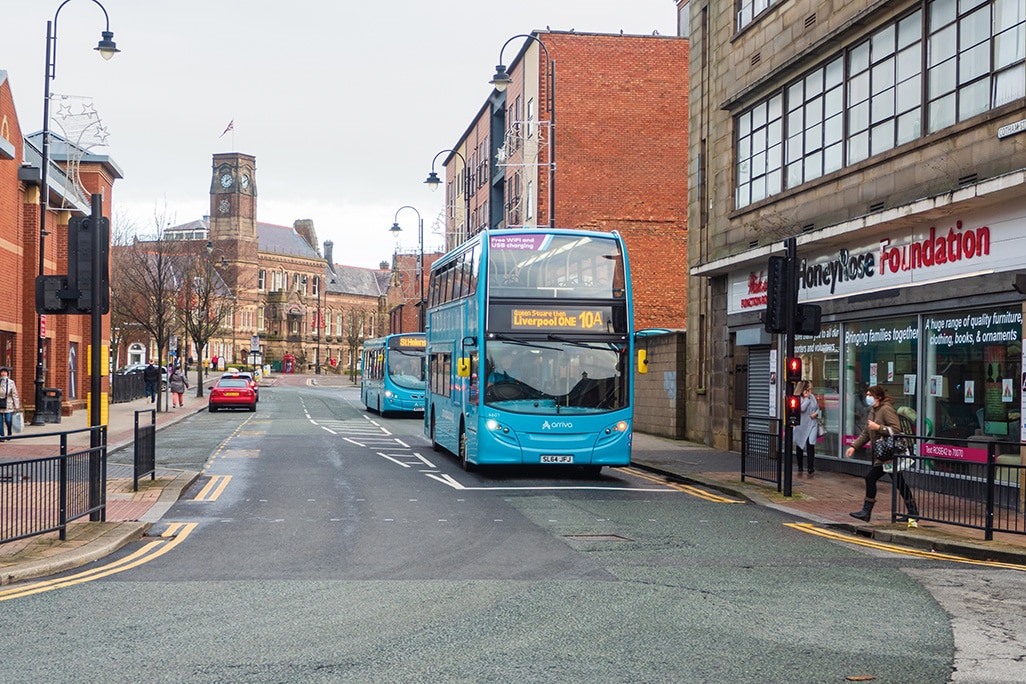£150m over six months, with nothing more to come, feels more like a sticking plaster than a long-term solution, suggests our man in Westminster
So the Department for Transport (DfT) has managed to squeeze a further £150m out of the Treasury to support the bus industry over the next six months.
This is, I’m told, is the last time the Treasury will provide emergency funding support for the industry, with the bus operators apparently assuring DfT that this further support package will be enough to stabilise the market.
That’s fighting talk, but I’m afraid I find that hard to believe. £150m over six months, with nothing more to come, feels to me like a sticking plaster, not a longterm solution.
Who is kidding who?
Over the last few weeks rumours have been swirling around that bus operators were preparing to cut around a third of their services, and Labour MPs were increasingly asking some well written parliamentary questions highlighting the threat of service cuts. And with Louise Hague, the Labour Party’s recently appointed shadow transport secretary, also writing to Grant Shapps on the matter, it felt to me increasingly likely that the government would have to find additional funding to support the industry – or else face a major political row.
The combined authorities and local transport authorities seem to have done a pretty good job in briefing Labour MPs on the cliff edge facing the industry – Grant Shapps has bought himself time, and I imagine he is just praying for a reshuffle sometime soon.
But I’m struggling with the suggestion from the operators that this further support package will enable the industry to stabilise – which I assume also means they think it will enable them to avoid large scale service cuts. Unless patronage bounces back dramatically over the next six months, won’t we simply be back to where we are today, with cuts inevitable? I wonder who is kidding who.
What is also striking is that while the National Bus Strategy set out an ambitious plan for growth, on which Bus Service Improvement Plans (BSIPs) were based, officials are now encouraging ‘realism’ by local transport authorities in their bus service planning. Well, if DfT wants realism, it should not have published an ambitious national strategy – although to be fair to DfT, I’m reliably informed that the strategy was as much a product of No 10 as it was of Great Minster House.
It seems to me that local transport authorities should stick to their guns.
Day of reckoning
Of course, we still have the announcement to come on the funding allocations for the BSIPs, and with these plans due to be implemented on 1 April, time is short.
From my various discussions with bus operators, it seems clear that DfT has been in quite active dialogue with them, rather than with the transport authorities, which strikes me as a little odd given that the BSIPs were developed and are ‘owned’ by the authorities.
Where we go from here is anybody’s guess. As I say, the additional £150m buys a little time but I can’t see that it solves the fundamental issues facing the industry. In the absence of longer-term support from the government a day of reckoning is surely going to come.
‘Partygate’
Meanwhile, we await the outcome of the Metropolitan Police investigation into the No 10 ‘partygate’ episode. I have a hunch that Boris Johnson may get off on a technicality. But I’m not sure that will save him.
The electorate seems to have already made its collective mind up that Boris Johnson at the very least broke the spirit of the law if not the letter, as the results of the by-elections for the Bexley and Old Sidcup, Shropshire North and Southend South constituencies underline. Conservative MP after Conservative MP are telling me that the mood in their constituencies is dire.
If the Conservatives get a real thumping in the local elections on 5 May, which seems increasingly likely – there is even talk that the party may lose control of Westminster City Council, a council it has held since the mid-1960s – then I think the parliamentary party will move against Boris Johnson and Sir Graham Brady will get the 54 letters needed to trigger a vote of no confidence. Nobody knows how many letters he already has but there seems to be a consensus within the parliamentary party that it’s around 40. The real problem for Boris Johnson is that the mood in the country is more antiBoris than it is anti-Tory.
Leadership challenge?
The dilemma for the parliamentary party is whether it should trigger a vote of no confidence, and potentially a leadership challenge, while the horrific events in Ukraine are unfolding.
Having a leadership contest while war is raging in eastern Europe would seem incredibly
self-indulgent. And while I think Boris Johnson has handled this issue really well, in many respects developing and leading Europe’s response to the crisis, I think it may only have delayed matters, not seen the challenge off.
Tory MPs will look at the results of the local elections on 5 May and what that means for their chances of re-election if Boris Johnson is still party leader when the general election comes.
I think they will come to only one conclusion. Of course, Boris Johnson is also sitting on a relatively small majority in his own constituency, and if there really is a strong anti-Boris sentiment out there, he may find that he loses his own seat as well as being thrown out of No 10 by his own MPs. Mind you, if he is challenged and loses that challenge, I suspect he would resign as an MP anyway.
Grant Shapps has been a loyal supporter of Boris Johnson. If Boris Johnson goes, Grant Shapps may find that a new leader has no place for him in their Cabinet. He may want to move on from his transport brief and get promoted, but he may find himself back on the backbenches instead. Politics is a brutal game.

























